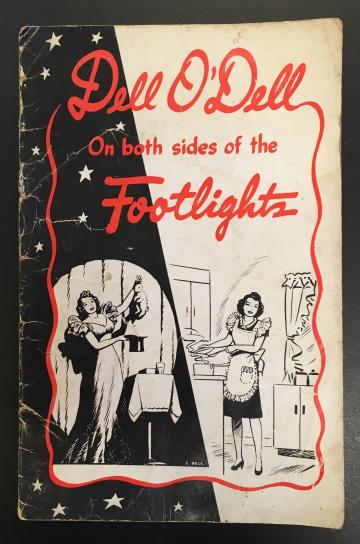Happy International Women's Day! As part of the Staging Magic - The Story Behind The Illusion exhibition, staff have started a project to develop and diversify our magic collection, specifically focusing on female magicians and women practising magic, dedicating some funds from the 'staff collection development scheme' to acquire materials.

The term 'magician' is often associated with men and, as a result, women who perform feats of magic are often described as 'witches' and have been marginalised in the world of magic. Until the mid-19th century women magicians were almost unheard of. In fact due to the legacy of the persecution of witchcraft, it could be outright dangerous for women and men to display their magical abilities. However, as magic performances became a part of Victorian popular entertainment over the course of the 19th century, women started being able to make a living as stage magicians too, either performing by themselves or alongside their husband and family.
A different kind of magic?
Even today, it’s still very much a male-dominated world but there have been a few bold women who wanted a different kind of magic. Some of our new acquisitions reveal how women, in the 19th and 20th centuries, could style themselves as stage magicians and make a career in the profession in their own right...
Leona Anderson is an example of a female member of a 'magical family' and was the second wife of John Henry Anderson, known as 'The Great Wizard of the North'. He toured widely with his family as assistants during the mid-19th century. In a playbill from the 26th January 1874, Leona Anderson is advertised performing her 'Great Illusion … entitled the Original Aerial Suspension' at Gowan’s Opera House in Ottawa, Canada. It is clear that her performance was considered a key part of the evening’s entertainment given her prominent position on the programme. Several of John Henry Anderson’s daughters also went on perform as stage magicians in their own right, including Alice Hannah Anderson, who was known as ‘Flora Anderson’ on stage.
We have recently acquired a pamphlet on Odella Newton (1897-1962), whose stage name was ‘Dell O’Dell’, one of America’s pioneering female magicians. She was the only female member of the Magicians Guild and even had her own TV show called the Dell O’Dell Show.
 There is also a booklet titled Dell O’Dell: On both sides of the Footlights (1946) which describes her in grand American style as the 'First Lady of Magic' and claims that she took up magic seriously… just because some male magician said “a girl cannot learn magic”. Given this anecdote, it
is even more striking to see how she is depicted on the cover – on the left as the magician on stage, on the right as the house wife at home. This gives us some insight into the representation and advancement of women
in the profession at that time.
There is also a booklet titled Dell O’Dell: On both sides of the Footlights (1946) which describes her in grand American style as the 'First Lady of Magic' and claims that she took up magic seriously… just because some male magician said “a girl cannot learn magic”. Given this anecdote, it
is even more striking to see how she is depicted on the cover – on the left as the magician on stage, on the right as the house wife at home. This gives us some insight into the representation and advancement of women
in the profession at that time.
The 'staff collection development scheme', allows members of staff who don’t usually participate in developing the Library collections, to gain experience in this area. With this scheme we have been able to give a voice to women within magic and in future, it will help a variety of different groups of people where they have previously been underrepresented in the collections.

